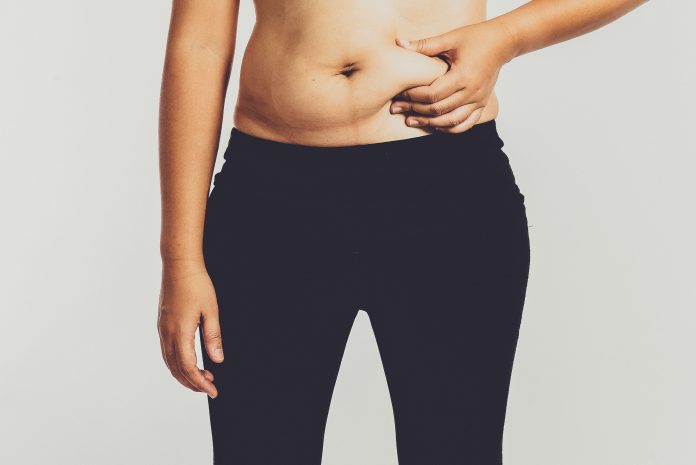Traditionally, the keto diet’s popularity has been centered around its effectiveness as a weight-loss tactic. Achieving ketosis means that your body has become efficient at burning fat and using it instead of glucose for energy. So it doesn’t come as a surprise that anyone would find gorging themselves on rich cheese, full-fat meat, and indulgent bacon as an attractive way to lose weight.
Unfortunately, the complete opposite outcome can sometimes happen and people can end up gaining weight on keto. It isn’t what’s meant to happen, but it does. Why? Because not everyone is taking into account some of the risk factors that go along with a strict lifestyle. In short, one wrong move and the pounds can pile on.
Not Achieving Ketosis
Macros and nutrients are important factors of a keto lifestyle, and if the dieter isn’t taking these numbers seriously, that means that they are unlikely to lose any weight because they keep going over the limit. Consider investing in a home testing kit if this issue seems familiar to you. These kits contain test strips that check for the presence of ketones in your urine. A positive result indicates that the body is in ketosis.
Eating Too Much Protein
Back to the issue of overdoing it on the macros (and not being aware of how much you’re taking in), remember that like anything else, too much protein is bad for you. Many low carb diets allow for a moderate amount of protein, but it’s easy to go overboard and assume that low carb and high protein equals a keto diet. But too much protein will probably not get the body into a state of ketosis because the excess proteins may break down into amino acids and convert to types of sugar.
A person who is on the keto diet will get most of their calories from fat, which should represent about 55-60% of their caloric intake. This fat intake leaves little room for protein. If protein makes up more than 35% of a person’s diet, it is unlikely that they are going into ketosis.
Constant Snacking
Even when a person has an approved meal plan in mind, if they succumb to continual snacking, this can greatly increase their calorie intake. A snack may help prevent hunger pangs, but it can easily sabotage weight loss efforts.
Drinking Alcohol
Even though the lines are blurred on the alcohol rules when it comes to staying keto-compliant, enjoying even the most harmless alcoholic beverage can put you at risk for weight gain. Alcohol is an easy way to increase calorie intake without providing the body with nutrients, even when it’s a hard-alcohol drink (such as gin and vodka), which is lower in carbohydrates. Despite their low carb count, however, these drinks are very calorie-dense. As such, even these options can prevent weight loss.
Lack of Exercise
While weight loss mainly happens in the kitchen, exercise shouldn’t be neglected or underestimated in terms of its effectiveness when it comes to the battle of the bulge. Furthermore, on keto, exercise is essential. Exercise also stimulates the body’s metabolism and burns calories. It is, therefore, a great tool for dieters. Exercise may be especially important on a keto diet, as the high-fat foods that a person eats contain many calories. Burning calories through exercise can help a person reach their desired weight.
High Stress
You might want to get to bed earlier, roll out that yoga mat, or do whatever you need to do to get you out of stressful situations. A stressful lifestyle can also stop a person from losing weight on the keto diet. As past studies have shown, stress can cause changes in hormone levels, which can lead to weight gain or difficulty losing weight. Also, chronic stress tends to cause people to crave comfort foods and error in judgment when it comes to up-keeping a restrictive eating pattern.
Underlying Medical Conditions
Unfortunately, it often happens that a person may be doing everything “right” and is still unable to lose weight on the keto diet due to underlying medical conditions that cause weight gain or effectively prevent weight loss.
Alternatively, a medication that a person is taking for the underlying condition may be causing increased appetite as a side effect.
Some conditions that can contribute to weight gain include:
- Hypothyroidism
- Polycystic Ovarian Syndrome (PCOS)
- High insulin levels
- Depression
But where there’s a will, there’s a way.
Here are some simple tips you can implement into your lifestyle to alleviate your stress on keto, making sure that if you’re on the road to messing up, you can reverse your sins at least a little.
Drink Water
Staying hydrated is a fat-flusher, can burn calories, and satiates the appetite. If you drink plenty of water, it may help prevent you from snacking.
Keep a Food Journal
This is important. By keeping track of what you eat throughout the day, it’s easy to identify any foods or eating patterns — such as snacking — that may be preventing weight loss. You’ll also be able to track your macros, meaning how much fat, protein and carbohydrates you’re intaking.
Chew Sugarless Gum
If your gum is sugarless and contains either keto-compliant sweeteners such as erythritol or stevia, it may help momentarily satisfy cravings for sweet foods. It could also act as a quick snack that’ll keep you from reaching for anything else if you’re a snacker.
Sleep, Sleep, Sleep!
Sleep helps regulate the body’s normal cycles, and it may also help reduce stress levels. Being stressed is a huge factor that leads to weight gain, and studies have shown that people who get a good night’s sleep regularly generally weigh less compared to those who don’t.






